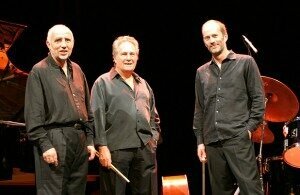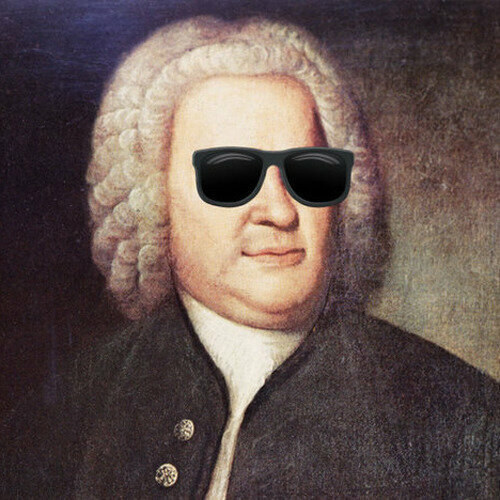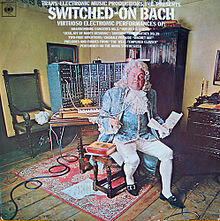
Swingle Singers
Credit: http://www.singers.com/
Johann Sebastian Bach: Sonata for Viola da Gamba, BWV 1029 (clarinet)
In 1962, a group of eight highly talented session singers under the direction of Ward Swingle provided background vocals for such greats as Charles Aznavour and Edith Piaf. Since vocal warm-up exercises can be rather tedious, the group decided to sight-read through J. S. Bach’s Well Tempered Clavier, with Mr. Swingle famously suggesting that “Bach’s music has a natural swing!” And so it came to pass that they recorded their first album Jazz Sébastien Bach as a present for friends and relatives. Public interest in the group went viral, and the “Swingle Singers” continued to record one award winning record after another. Over the years, performers have changed and the repertory expanded, but the magical swing has remained as fresh as ever.
Johann Sebastian Bach: Well Tempered Clavier, Book 2; Fugue No. 8 in D-Sharp minor, BWV 877

Play Bach Trio
Credit: https://files.list.co.uk/
N. Rimsky-Korsakov: Six Variations on the theme B-A-C-H, Op. 10
In 1959, Jacques Loussier had a rather novel idea, one that was to establish his international reputation. He decided to combine his interest in jazz with his love of Johann Sebastian Bach. So he founded the “Play Bach Trio,” and used Bach’s compositions as the basis for jazz improvisations. The trio immediately sets the world on fire, and was incredibly busy with live appearances, tours, concerts, and recordings for the next 20 years. After a period of time when Loussier focused on his own original compositions, the tercentenary of Bach’s birth in 1985 saw him re-establish the “Play Bach Trio,” and they have been touring ever since. Age has never been an issue, and the octogenarian Loussier still brings his unbridled enthusiasm, boundless energy and musical refinement to numerous venues around the world.
Johann Sebastian Bach: Italian Concerto, “Allegro” Jacques Loussier
If you have ever wondered what Bach’s music sounds like on a banjo, or how Arnold Schoenberg dealt with his cultural and musical heritage, please join me next time. Also on offer are selections from the “Modern Jazz Quartet” and from a Bach Suite for piano left hand composed by Max Reger.



